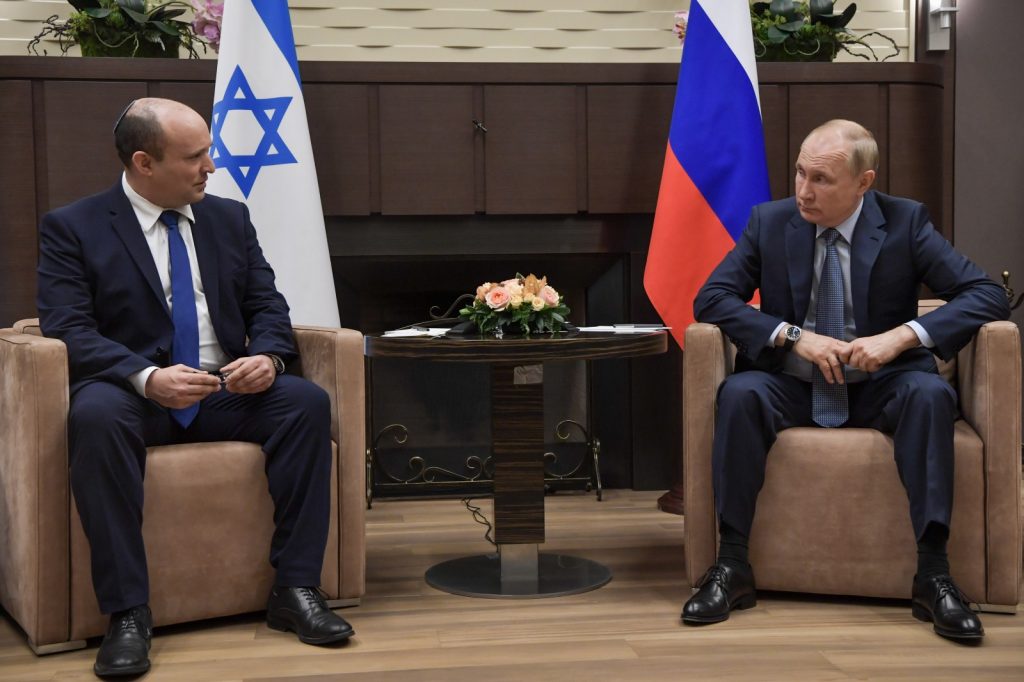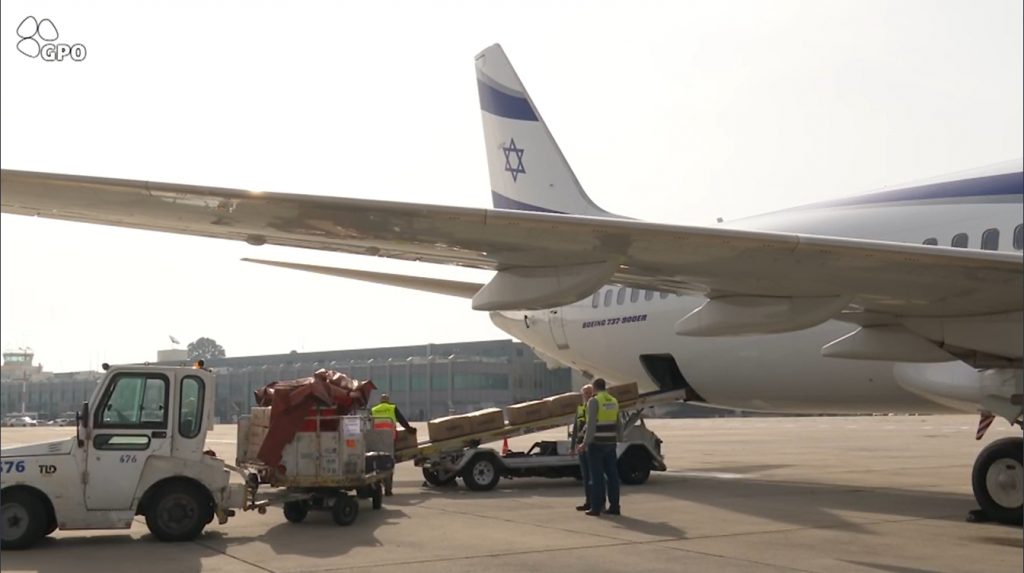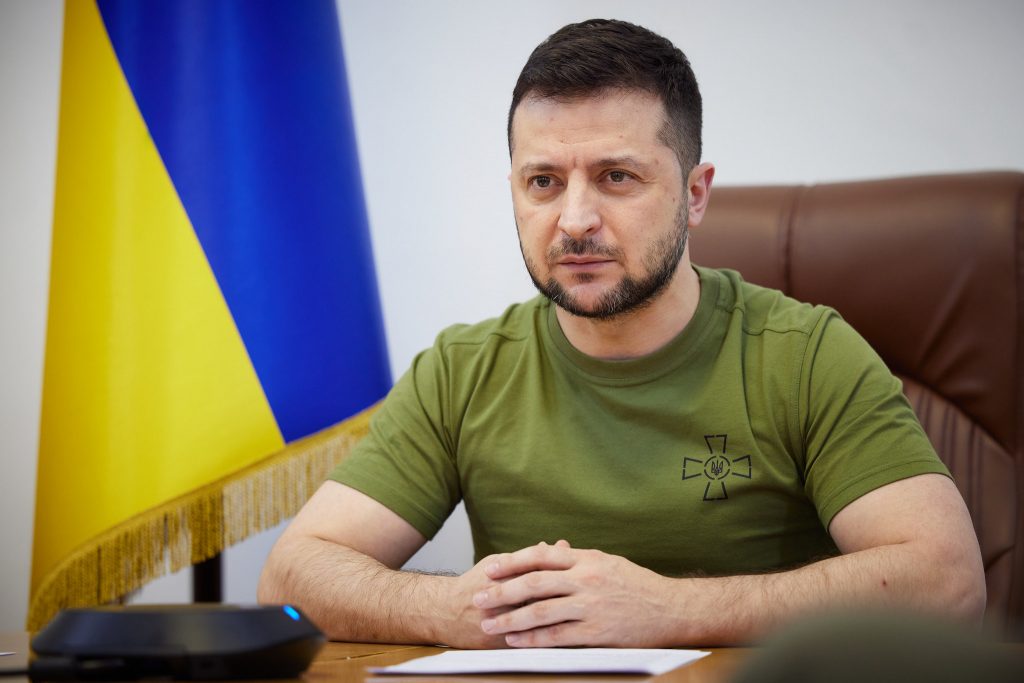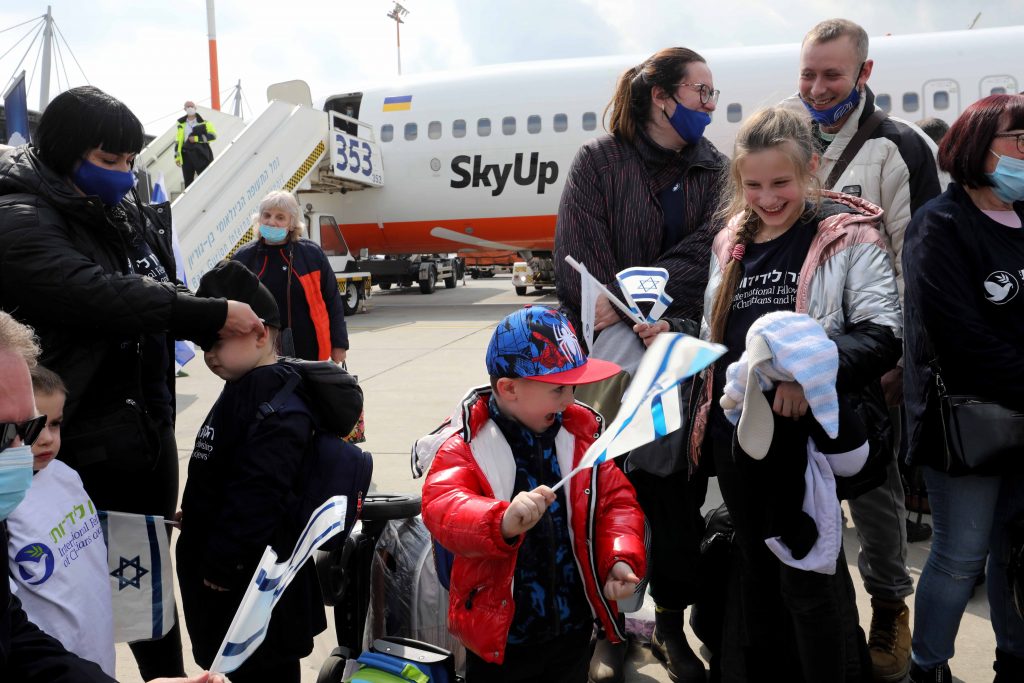Australia/Israel Review
Israel and Ukraine: A cautious approach
Mar 29, 2022 | Amotz Asa-El

Israel was hardly two years old when the Cold War produced its first hot war, as 53,000 North Korean troops crossed the 38th Parallel and stormed Seoul.
As Washington set out to rally its allies, and with UN Secretary-General Trygve Lie formally asking Israel to join the international force being prepared to fight the invasion, then Israeli PM David Ben-Gurion assembled his cabinet and made the case for heeding the request. He was overruled.
Led by future prime ministers Moshe Sharett and Golda Meir (then Foreign and Labour Ministers, respectively), opponents argued that Israel was in no position to militarily confront the Soviet Union. Ben-Gurion duly agreed to settle for making an offer of medical assistance.
Now, as war rages in Ukraine while Russian-American acrimony resumes in earnest, Israel faces a similar dilemma and appears to be adopting a similarly cautious attitude. Circumstances, however, are very different despite the apparent similarities, and so is the actual policy.
Israel’s reluctance to take sides in the Russian-Ukrainian conflict surfaced originally during Russia’s forced annexation of Crimea in 2014. Back then Israel refrained from joining American-led international sanctions against Russia, even in the face of pressure from then-US President Barack Obama.
Like Sharett and Meir during the Korean War, Israeli leaders were concerned about the sizeable Jewish population under Moscow’s sway. Led by then-Prime Minister Binyamin Netanyahu and Avigdor Lieberman, his Foreign Minister at the time, that policy was a matter of national consensus, endorsed also by then-Opposition Leader (now President) Isaac Herzog.
Israel’s choice in 2014 appeared vindicated in 2015, as Russia intervened in the Syrian Civil War, and its fighter jets and other military assistance ultimately won that war for Syrian President Bashar al-Assad. With the Russian air force now parked hardly a 15-minute flight north of Tel Aviv, Russia effectively became, overnight, Israel’s neighbour.
The good rapport Israel had cultivated with the Kremlin now proved crucial, as Moscow readily agreed to assemble, together with Jerusalem, a military coordination forum in which Russian and Israeli officers met regularly to discuss how to prevent mishaps when Israel attacks Iranian targets in Syria.
That was last decade. Now, as Russian tanks rolled into Ukraine and Washington drafted an anti-Russian resolution in the UN Security Council, Israel was asked, along with the rest of America’s allies, to co-sponsor the resolution, which was indeed backed by 81 delegations. Israel, however, politely refused, even after Foreign Minister Yair Lapid had already condemned the invasion as “a grave violation of the international order.”
That decision was relatively simple because the Security Council resolution was always going to be vetoed by Russia, so Israel’s deviation from the Western line didn’t matter. Moreover, the following week, the limits of Israeli caution were exposed when Jerusalem co-sponsored and voted for a UN General Assembly condemnation of Russia’s invasion. Moreover, Israel also reportedly lobbied for its friends in the Arab world, such as the United Arab Emirates, to also back the General Assembly motion.
Yet in terms of the more substantive matter of sanctions on Russia, Israel has so far also resisted American pressure to follow its lead, much the way Netanyahu did in 2014.
Israel imports US$2.14 billion (~A$2.89 billion) of oil and grains as well as heavy and precious metals from Russia annually, and exports to Russia US$960 million (~A$1.3 billion) worth of goods, mostly food, medical equipment and other technological products.
Much of this trade stands to be affected by the US-led international sanctions due to the American ban on using dollars in deals with Russia. However, the Israeli Government is not interfering in this traffic, and Israeli companies are free to trade with Russia if they can.

Israeli aid is loaded to send to Ukraine (IGPO screenshot)
That is why El Al continues flying to Russia, virtually the only Western airline to do so, if one sets aside Air Serbia. El Al explained the decision by saying it “is operating flights to Russia at the request of the Israeli government, and we will continue to provide means of travel for Israelis and Jews from Russia for as long as possible,” adding it had delivered humanitarian supplies for Ukraine and evacuated thousands fleeing the war.
At the same time, Israel has so far turned down Ukrainian pleas to send arms, even non-lethal military items like helmets and protective vests, while making a special effort to extend humanitarian assistance to Ukraine, especially in terms of medical care.
What began with the delivery of 100 tons of equipment in three flights – including medical equipment, pharmaceutical products, water purification systems, tents and blankets – was then followed by a Government decision to set up a field hospital in Ukraine.
Located in the town of Mostyska, some 60 km west of Lviv and 10 km east of the Polish border, and using 17 tons of equipment all flown in from Israel, the hospital is designed to treat the war’s civilian casualties and also includes an obstetrics ward. Staffed by Israeli doctors and nurses and protected by Israeli security, it started operating on March 25 and cost Israel NIS 21 million (~A$8.7 million).
In its hope to remain on good terms with Ukraine despite its overtures to Russia, Israel also agreed to allow President Volodymyr Zelensky to address the Knesset via Zoom. He used the opportunity to scold Israel for its failure to sell arms to Ukraine and to join anti-Russian sanctions, and also used Holocaust analogies regarding his country’s plight that were not well received.

Ukrainian President Volodymyr Zelensky remotely addresses the Knesset (Image: Flickr)
Still, Israel’s cautious approach to the conflict has placed it in an improbable diplomatic position where it had never previously been: as a mediator.
Israel’s position as a key mediator between Russia and Ukraine emerged unexpectedly on Saturday, March 5, when news broke that Israeli PM Naftali Bennett had met for more than three hours with Russian President Vladimir Putin in the Kremlin after an unscheduled last-minute trip to Moscow.
Bennett thus became the first, and, for now, the only Western leader to visit Putin since the war’s outbreak. When the meeting ended, Bennett held a telephone call with Zelensky, and then flew to Berlin where he met with German Chancellor Olaf Scholz.
Neither Jerusalem nor Moscow reported the contents of that meeting in the Kremlin. A Financial Times report 10 days after the meeting claimed Bennett played a central role in creating a 15-point document that is serving as the basis for talks over a peace deal involving a Russian retreat from Ukraine in return for a Ukrainian commitment to a policy of neutrality and accepting limitations on its military.
While this report’s accuracy is for now unclear, what is clear is that Israel is currently the only Western country Putin trusts as a potential arbiter.
Whatever the meeting’s meaning in terms of the war, it clearly dealt with other issues as well. While no one has hard information on this, the assumption in Israel is that Bennett detailed Israel’s willingness to refrain from joining anti-Russian sanctions, and in return asked for Russian assistance on three fronts.
The first, and most obvious, front is Syria. Israel must make sure that whatever happens between the superpowers does not affect its activities in Syria. This was tested sooner rather than later.
Two days after the meeting in the Kremlin, the Israeli Air Force struck military targets in the Damascus area, according to a Syrian Government statement. Two senior Iranian officers were reportedly killed in the attack. Israel has been striking Iranian targets in Syria since 2013, including military bases, ammunition bunkers, missile factories, and arms convoys. Israeli pundits believe Putin agreed to continue staying clear of this Israeli activity.
The second issue Bennett is believed to have discussed with Putin is the evolving international agreement on Iran’s nuclear program. With reports piling up that negotiators in Vienna are close to agreement, and with Israel despairing of dissuading Washington from signing this deal, Bennett is believed to have tried to dent the Russian position.
With or without connection to Bennett’s efforts, the week after his meeting in the Kremlin, Russia raised a new obstacle in the Iran talks when it demanded that Washington promise not to sanction Iranian-Russian trade under the sanctions regime imposed on Moscow for the Ukraine invasion. The demand reportedly stalled progress toward the deal’s signing, and looked like it might derail it, before the impasse over these Russian demands was reportedly resolved a few days later.
Lastly, Bennett and Putin are believed to have discussed immigration.

Ukrainian immigrants arriving in Israel (Image: Shutterstock)
The exodus of refugees from Ukraine, though obviously flowing mostly to its European neighbours, has also reached Israel. Some 6,000 refugees eligible for immediate Israeli citizenship according to the Law of Return arrived at Ben-Gurion Airport during the war’s first three weeks.
Estimates are that fighting may ultimately generate an influx of 50,000 to 100,000 Jewish immigrants. Immigration officials believe the war will spark emigration not only from Ukraine but also from Russia, where the weight of sanctions is expected to create economic hardships. This is besides non-Jewish refugees, whose ultimate total is expected to be relatively low.
Ensuring these immigrants’ safe passage to Israel from both sides of the war zone is for Israel a strategic imperative, and may have been the main reason for Bennett’s journey.
Bennett flew to Moscow with Housing Minister Zeev Elkin, a native of embattled Kharkiv who arrived in Israel in 1990, and is one of Israel’s most experienced Russia hands. Having attended many of Netanyahu’s meetings with Putin over the years, Elkin this time served as Bennett’s translator and advisor.
Both Elkin and Bennett are Orthodox Jews who do not ordinarily travel on the Sabbath. This time, however, they flew together on the Sabbath, a religious compromise observant Jews are supposed to make only if what is at stake is a matter of life and death. And the Ukraine crisis, almost everyone agrees, is clearly that.






